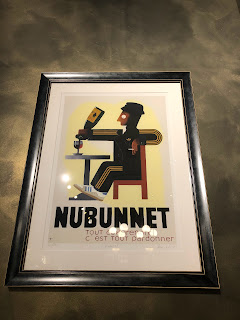I'm feeling unusually chatty this weekend. It's partly because I have (mostly) recovered from a two-week super-cold. It's partly because I have begun, a week late, to make Polish Easter food. And it's partly because a young person told me he/she didn't think about his/her spending habits and didn't want to. Thus, I was interrupted just as I was about to mount my hobby horse and go for a refreshing gallop. At the same time, though, I recognised my youthful past self in the young person, and therefore saw a future penny pincher.
How exciting!
Naturally I wish I had become more interested in household finances 13 years ago, when I was closer to the young person's current age and was about to get married. This is what I would tell my real younger self, as naturally that audience would be more receptive to my words than anyone else.
How to stop worrying about money
1. Neither you nor your spouse has to work until you drop. You don't have to be born with an "independent income." You can invest in something that will eventually give you an independent income.
2. Get a job.
3. Sign up to online banking and check your accounts every day.
4. Write down all your expenses to figure out where your salary is going.
5. Aim to save a certain sum each month.
6. Use this certain sum to pay off your highest interest debt. That would be the credit card. (Another option for the very lucky is to convince a very kind relative to pay off the highest interest debt and then use the certain sum to pay him/her back religiously.)
7. When the credit card is paid off, celebrate by putting the credit card in a plastic envelope and then putting the plastic envelope in an ice cream tub filled with water. Then put the ice cream tub in the freezer.
8. Pay off the lower interest debt. That would be your student loan.
9. When the student loan (or any other lower interest debt) is paid off, celebrate by opening a special savings account for your emergency fund. The emergency fund should cover 3-6 months' worth of expenses. In emergencies, dip into this instead of thawing out the credit card.
10. Do some math and seek advice. Would it be better, in the long run, to buy a property in your neighbourhood, or to keep on renting? Do you want to keep the flexibility of renting, or is homeownership your dream? How do you feel about buying a multi-family dwelling and renting out the other flats? Does this sound amazing or horrifying? It's up to you.
11. If you decide you're an embryonic homeowner, start saving for a down payment on your future home. In 2015, put the money in a UK Government Help-to-Buy Investment Savings Account (ISA)--which B.A. and I did in 2016, actually. (Nota Bene: It was B.A.'s idea.)
12. If you decide you'd prefer to continue renting (or build a tiny home on the family farm, or travel the continent in a motorhome, etc.), start investing in something relatively safe and boring that might, if all goes well, earn you, on average, 6%+ interest every year. Make sure it's tax-sheltered. In the UK that could mean a SIPP (self-invested pension plan) or an ISA (investment savings account).
13. If you want to buy a home, get a home report, read it throughly, and do your research (or hire a professional) to get the best possible mortgage at the best possible rate.
14. If you have bought a home, figure out if you'd like to pay off your mortgage early, or start investing like the renter, or do a combination. It is possible that if you make big overpayments on your mortgage (check how much is allowable before you are penalised), you will be able to refinance at a lower interest rate. Research, research, research. Ask experts questions and read all fine print.
15. Keep on saving and chucking the money into paying off the mortgage (which is a form of saving) and/or your relatively safe and boring investments.
16. Be fantastic at your job so you get raises (which go into the mortgage and/or the relatively safe and boring investments), and/or get a part-time job/side hustle to make extra money to put on the mortgage and/or the relatively safe and boring investments.
Have a forgotten anything? If so, I will come back and add. But to recap: Get a job, be able to find out in seconds the state of your bank account, know exactly how much you spend and why, save to pay off debt, save to create an emergency fund, save for a down payment on a home then/or to invest, increase your income.
Update: If it isn't obvious, this is not a guide to getting rich quick. It is also somewhat dull, like happiness. But it is a path to no longer worrying about money.
Update 2: It may also seem glacially slow, depending on how much or little you are able to save each month. Celebrate your small successes.




